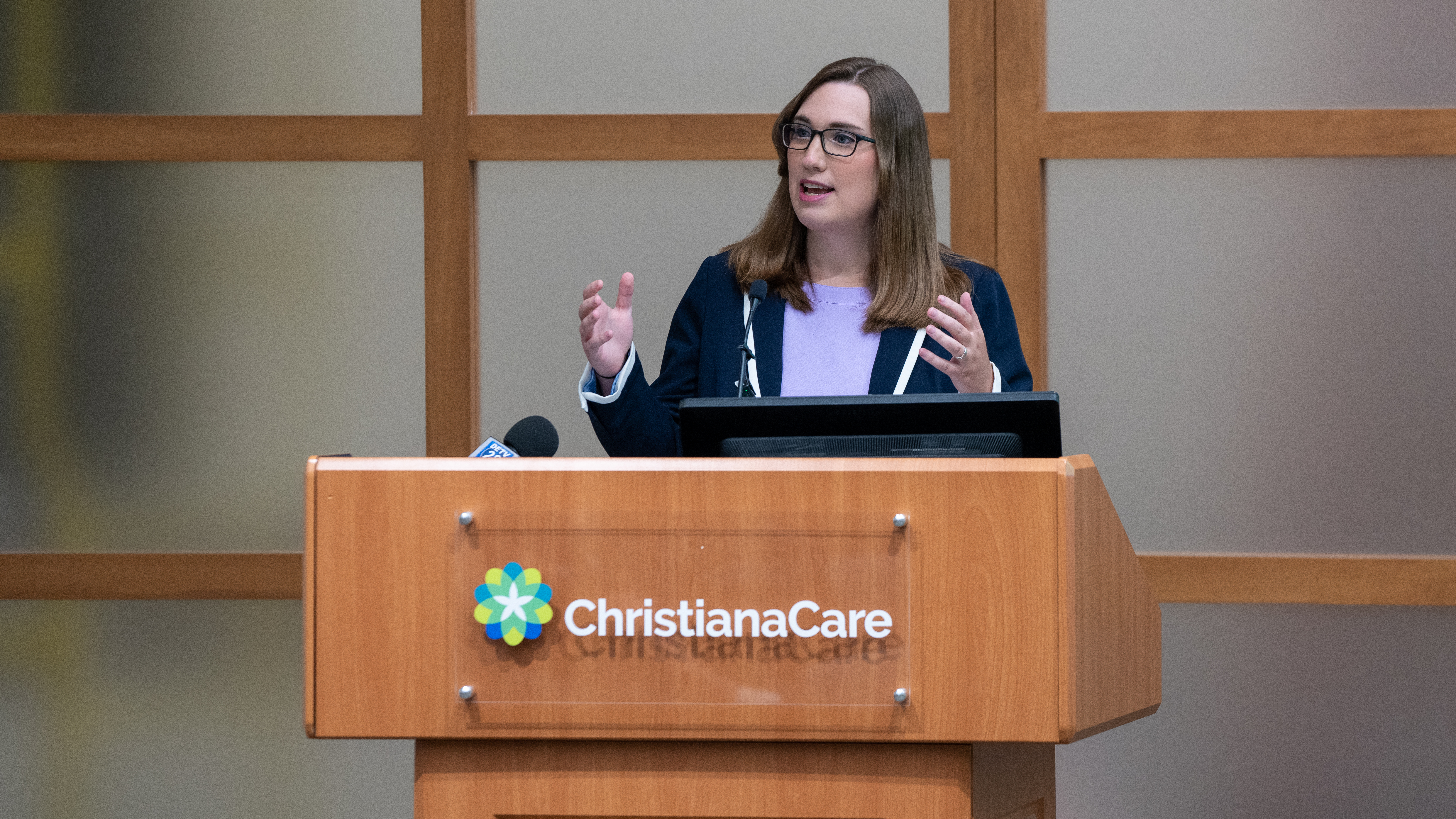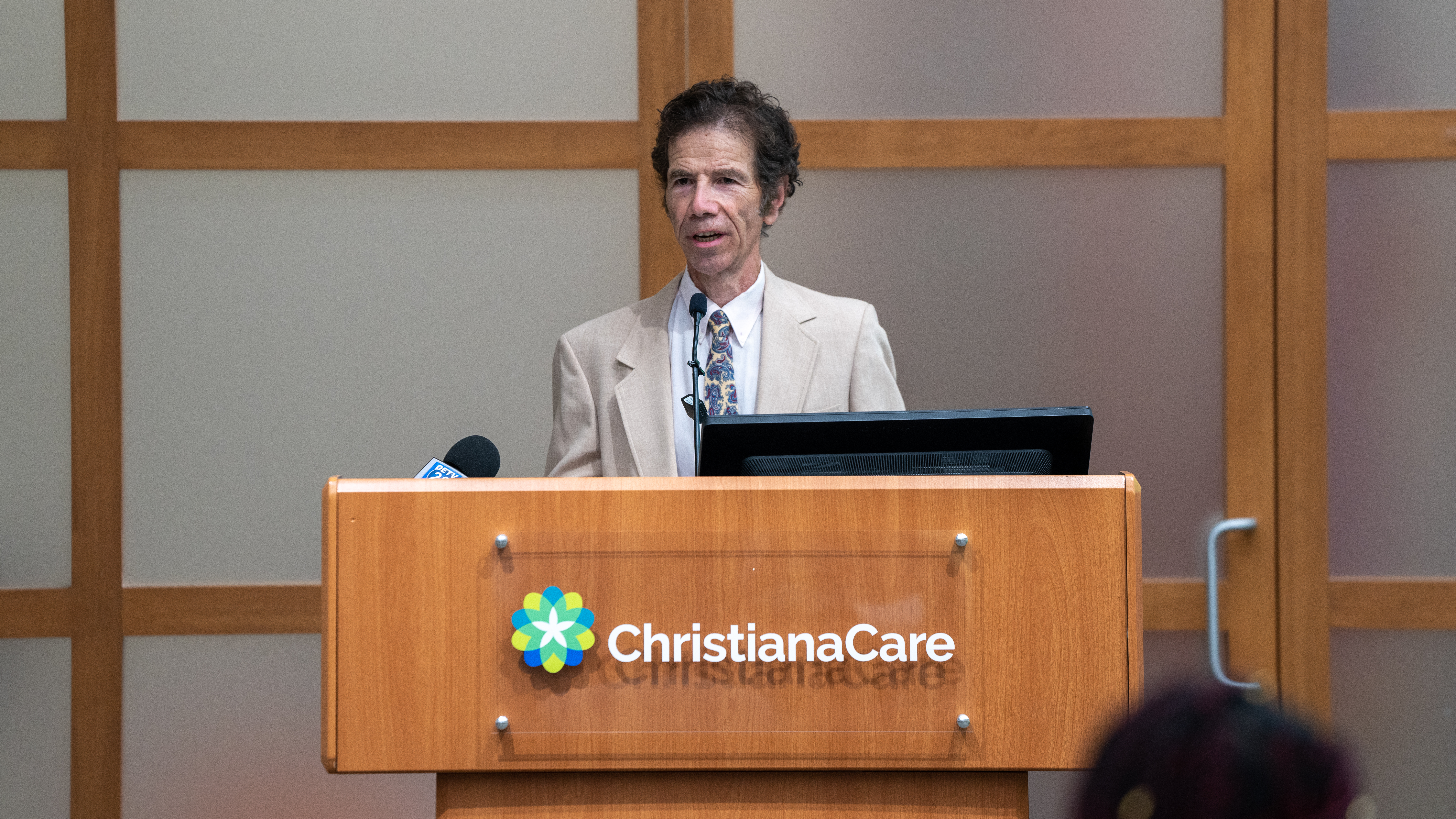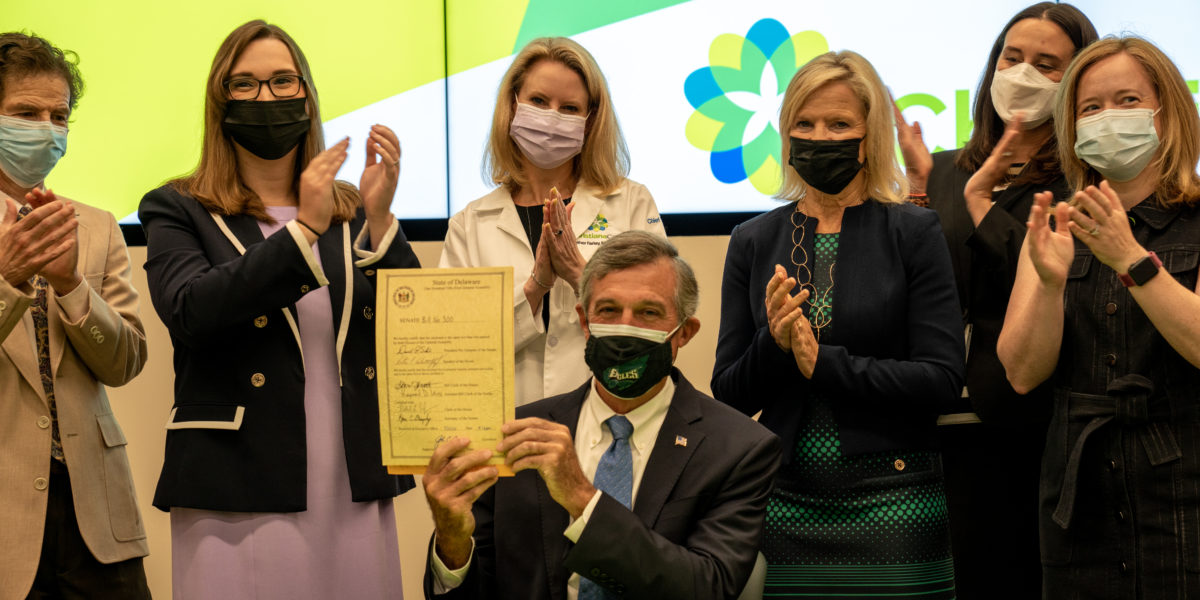Today, at ChristianaCare’s Wilmington Campus, Delaware Gov. John Carney signed Senate Bill 300, which updates reporting requirements for Delaware physicians, allowing them to seek treatment for behavioral health needs without undue stigma or fear of loss of medical licensure.
The law amends the Delaware code to remove mandatory reporting requirements for Delaware physicians who seek treatment for mental or physical health issues.
The changes align with national best practices from leading national experts including the Joint Commission on Healthcare Accreditation and the Federation of State Medical Boards.
“It’s our opportunity to step up and do something for those physicians to show we care,” Carney said prior to signing the bill, making it law. “This legislation is an important way of doing that.”

For more than two years, physician and other caregivers have faced unprecedented challenges in meeting the health needs of the community during the COVID-19 pandemic, said ChristianaCare President and CEO Janice Nevin, M.D., MPH.
They have worked tirelessly – but at a price.
“We have called them health care heroes. They earned that moniker, but at the same time, it’s easy to forget that heroes can hurt. We also need to recognize that they are health care humans. Humans are capable of incredible things but also can face mental, emotional and physical challenges. Sometimes, they need help,” Nevin said.
“Doctors should not have to worry about making a choice between getting that help and endangering their medical licenses.”

Delaware’s new law comes four months after federal legislation was passed with a focus on reducing and preventing suicide, burnout, and mental and behavioral health conditions among health care professionals. The legislation was named in honor of Dr. Lorna Breen, a New York City physician who died by suicide during the initial wave of COVID-19.

Removing the reporting requirements in Delaware makes it clear that a physician’s ability to practice medicine is not impaired or prevented by a mental or physical disability when the condition is being treated appropriately, said Heather Farley, M.D., MHCDS, FACEP, who provided expert testimony that supported the bill’s passage.
“Ultimately, this law supports the well-being of our caregivers and ensures that physicians can get the help they need,” she said. “Now we know that it really is OK to not be OK, and we are demonstrating that we will care for our caregivers in Delaware.”
Matthew Burday, D.O., president of the Delaware Medical Society, said the law is a relief for all physicians who have struggled with anxiety, depression and other conditions. But it is going to take time and additional education for doctors to recognize the importance of putting their own well-being at the forefront.
“Burnout is a psychological condition,” said Burday, who is an internal medicine physician with ChristianaCare. “When you’re feeling like that as a physician you really can’t take good care of your patients.”

State Sen. Sarah McBride, who sponsored the bill, thanked ChristianaCare leadership and caregivers for their time and dedication to advocate for this legislation. Health care is hard work in any year, McBride said, but the ongoing strain of the pandemic has put provider burnout at an all-time high, making it even more important for physicians to be able to seek out the care they need for themselves.
“Sweeping mental health needs under the rug, pretending that our health care providers aren’t people with the same health care needs as the rest of doesn’t help anyone,” she said.
With this new law, health care leaders and government leaders are promoting an idea that has long been at the center of caregiver well-being work here at ChristianaCare, Nevin said.
“When we care for ourselves, we are better able to care for our patients and each other.”



